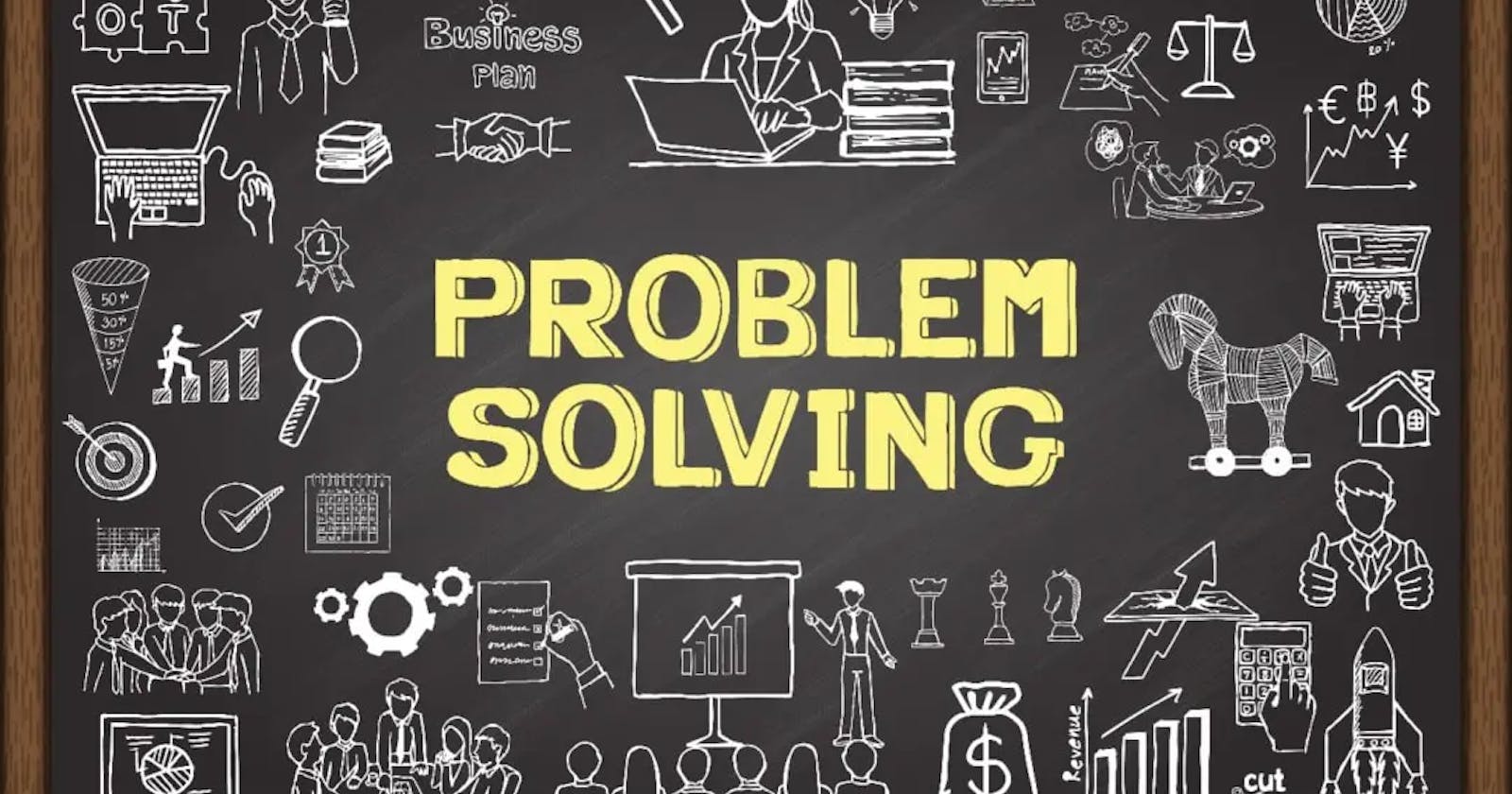Let's talk about Problem Solving
Sharing my experience about Problem solving and how one can follow this simple steps to be a Good Problem Solver .
Problem-solving is a crucial life skill that enables individuals to tackle various obstacles and challenges effectively. In this blog, we will discuss the importance of problem-solving, its various approaches, and tips for improving your problem-solving abilities.
Why is Problem-Solving Important?
Problem-solving is a critical skill that is required in both our personal and professional lives. From managing daily chores to navigating complex work situations, having a problem-solving mindset can help you make informed decisions, increase your productivity, and lead a fulfilling life. It also helps you develop critical thinking and creativity, as you are forced to find innovative solutions to complex problems.
Approaches to Problem-Solving
There are several approaches to problem-solving, including:
Analytical Approach: This approach involves breaking down a problem into smaller parts and using logic and data to find a solution.
Creative Approach: This approach involves using imagination and innovation to find unique and unconventional solutions to problems.
Collaborative Approach: This approach involves working with others to find a solution, leveraging the collective knowledge and expertise of a team.
Tips for Improving Your Problem-Solving Skills
Define the problem: The first and most crucial step in problem-solving is to identify the problem clearly. This helps you understand the scope and nature of the problem, and will also provide a clear direction to focus your efforts.
Gather information: Once you have defined the problem, you need to gather all relevant information about it. This will help you understand the causes and consequences of the problem, and will also provide you with the necessary data to evaluate different solutions.
Brainstorm solutions: The next step is to generate a list of possible solutions. This can be done through brainstorming, group discussions, or by seeking the advice of experts. The goal is to come up with as many potential solutions as possible, no matter how unconventional they may seem.
Evaluate the solutions: Once you have a list of potential solutions, it is time to evaluate each one. You can do this by considering the pros and cons of each solution, and by considering the impact each solution would have on different stakeholders.
Choose the best solution: After evaluating all the potential solutions, you should choose the one that is the most feasible, effective, and efficient. It is important to take into consideration any potential challenges that may arise and to have a plan in place to overcome them.
Implement the solution: Once you have chosen the best solution, it is time to implement it. This requires clear communication, effective project management, and a focus on the goal.
Monitor and evaluate the results: After implementation, it is important to monitor and evaluate the results to see if the problem has been solved. If not, it may be necessary to go back to the drawing board and come up with a new solution.
Problem-solving is a continuous process that requires patience, perseverance, and a willingness to learn. It is a valuable skill that can be applied in many different areas of life and can help you become more confident, creative, and effective in the face of challenges.
Conclusion
In conclusion, problem-solving is a critical life skill that can help you navigate various obstacles and challenges. By developing a problem-solving mindset, you can improve your decision-making abilities, increase your productivity, and lead a fulfilling life. Remember to practice active listening, take a step back, consider multiple solutions, seek feedback, and learn from failures. With these tips, you'll be well on your way to becoming a confident and effective problem solver.
Hope this will help you to become a better Problem Solver.
#
